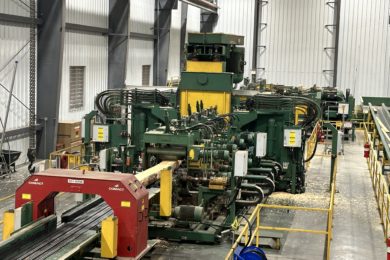By Fernanda Abíli, Executive director Florestar São Paulo
My first professional experiences related to the forestry sector occurred during the early years of college, in the internship period. I was 18 years old, and I quickly realized that it wouldn’t be easy, starting with the commute to the workplace. Harassment was present on the bus, on the subway. I also had the opportunity to intern outside of Brazil, in the United States. And there, it was no different. Being a young woman, different from the profile of others in the same environment, seemed to condone any inappropriate behavior from colleagues.
Now, I am completing 15 years in the forestry market, and what I can confirm is that these instances of prejudice and harassment do not reflect the stance of a particular company or region but rather of individuals. I also perceive that this is something that is becoming a thing of the past. Today, we see female executives not only in the forestry sector but also in other areas. As the new generations take on leadership roles, the environment becomes more inclusive. Men assist women in combating harassment, understanding that opportunities should be given equally.
When I entered college, my class was almost 50% male and 50% female. However, in the workplace throughout my career, on average, only 5% were women, with rare exceptions in leadership positions.
Over the years, we have witnessed changes. We see women taking on roles of greater responsibility with great competence. I feel well-represented by the women who are reaching these positions. I feel honored, as a woman, to be in the executive direction of the Paulista Association of Producers, Suppliers, and Consumers of Planted Forests, an entity that brings together 11 important companies in the sector in São Paulo.
I can mention other women who are doing fantastic work, such as Tatiana Kalman, Senior Vice President and General Manager in Latin America at Sylvamo; Mariana Lisboa, responsible for the Corporate Relations department at Suzano and also president of the Bahian Association of Forest-Based Companies; Adriana Maugeri, CEO of the Minas Gerais Forestry Industry Association.
According to the Gender Panorama report from the Forestry Women’s Network, in 2021, only 4% of women held leadership positions in the Brazilian forestry sector. Last year, this number increased to 7%.
In an ideal scenario, the issue of gender equity wouldn’t need to be discussed. It could be something natural, where recruitment and decisions are made based on the professional and technical capacity of each person, regardless of gender. Questions directed at women about marriage, children, or family dynamics wouldn’t need to be part of a selection interview.
Much is changing, and women entering the workforce now find an environment less tainted than previous generations encountered. The persistence of women (and men) in seeking equality is yielding results, and I am optimistic that this will continue to evolve.
photo: Fernanda Abílio Executive director Florestar São Paulo







